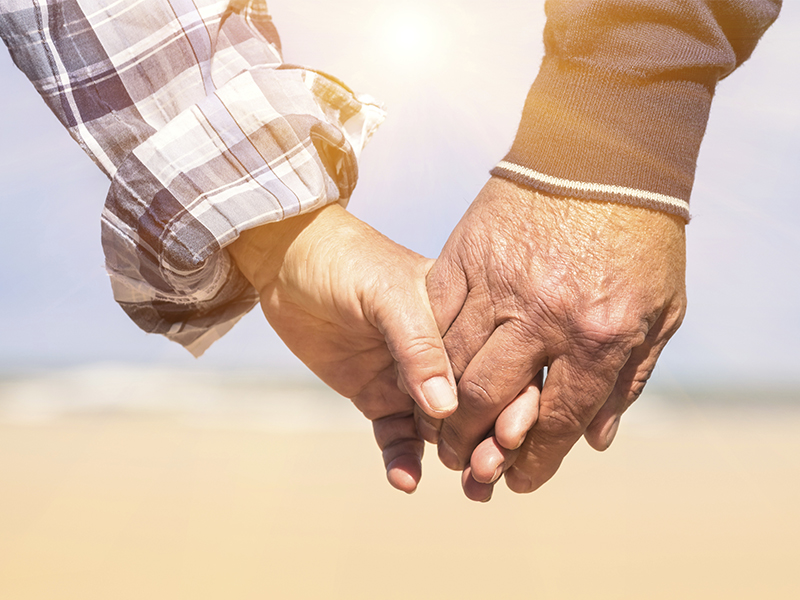Dating again after the death of a partner
The death of a spouse is painful. For the surviving spouse, life goes on and, in time, this may include dating.
Sadie Shefe, Ph.D, LSW and board-certified clinical sexologist with DQS Communications Healthcare Group in Hampton, says most widows and widowers date after the death of a spouse for companionship and fulfillment.
Shefe says there is no specific time to grieve before dating again.
“Some might be ready after six months while others longer. Grief can come in and out. Usually it is stimulated by something that triggers it,” she says.
When a surviving spouse starts to date, guilt is not uncommon. They feel they are cheating on their late spouse, Shefe says.
“After some time, that changes and they are able to experience the joy of getting to know someone new. But if guilt continues, it is best to take a break and try again later,” she recommends.
Shefe emphasizes that widows and widowers view dating as just that, dating, not necessarily choosing a spouse; it is a way to prevent isolation. “And it doesn’t change what they had with their late spouse,” she adds.
When on a date, Shefe says it is all right to mention a late spouse, “Just don’t over do it. And don’t use a date for a therapy session.”
Family members may have reservations about the situation, especially if it is a parent who has passed.
“If a parent is dating, they are not trying to take away what the other parent meant to the children,” she says.
Adult children should realize if their parent has companionship, they will live better and be around for them longer, she adds.
When introducing a new partner to the family, Shefe advises it is best to do so gradually. If someone does not like the new partner, it is best to address it in a private conversation with the family member.
She warns that widows and widowers need to be careful not to move into a relationship quickly.
Eve McGrory’s husband, Richard, passed away 15 years ago after 45 years of marriage and dating has meant companionship, something she believes is important for a healthy lifestyle. McGrory has been dating Bob O’Connor, who is divorced, for the past year. The pair resides at Westminster-Canterbury on the Chesapeake Bay, an active retirement community in Virginia Beach. They met on the elevator.
A month later, McGrory noticed O’Connor’s name in the community’s bulletin birthday list.
“I saw him again and asked him how he would like to celebrate. I was very bold,” she says.
They later celebrated over dinner.
The pair live separately, but are often seen together and frequently hold hands to express affection. Their activities together include swimming, walking, playing table tennis and dancing.
“We have a lot in common,” she says.
When asked about reservations on dating after her husband’s death, McGrory says, “I feel life is for the living.”
She says her grief over her husband’s passing was short because he suffered nine years with liver disease and a transplant.
“In the end it was a blessing. And because it was so long, I was able to prepare myself,” McGrory says.
Her two grown daughters and grandchildren have fully accepted O’Connor into their family. One daughter lives nearby with her husband and children. They frequently have dinner together.
“They like him, too,” she says.
For that O’Connor, who does not have children, is grateful.
“I know there could be strong emotions carried into something like this,” he says.



